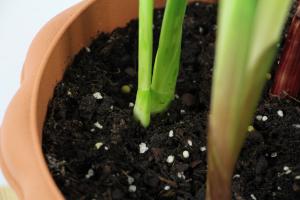Why You Should Consider Transferring Your Plants from Plastic Pots
Plastic pots are a common choice for growing plants, and for good reason. They are affordable, readily available, and come in various sizes and colors. However, should you leave your plants in plastic pots for too long? Here are some reasons why you might want to consider transferring your plants to a more suitable container.
Plastic Pots Can Be Too Small
One of the most common reasons to transfer a plant out of a plastic pot is if it has outgrown the container. While plastic pots can be convenient and come in many sizes, they are not always the best choice for a growing plant. Over time, the roots of the plant may outgrow the container, causing it to become root-bound. This can lead to stunted growth, poor water retention, and even plant death. Therefore, it is essential to choose a pot size that allows your plant to grow and thrive.
Plastic Pots Can Trap and Retain Water
Another reason to consider transferring your plant out of plastic pots is that they can trap and retain moisture for long periods. While this may be a good thing for some plants that thrive in humid conditions, it can be detrimental to others. Excess moisture can cause roots to rot, attract pests, and promote the growth of harmful bacteria and fungi. Therefore, it is crucial to choose a pot with proper drainage to prevent water from becoming trapped.
Plastic Pots Can Leach Harmful Chemicals
Plastic pots are made from a variety of materials, including polypropylene, polyethylene, and polystyrene. While these materials are generally safe, they can leach harmful chemicals into the soil and harm your plants. Plastic pots that are exposed to sunlight or high temperatures can release bisphenol-A (BPA), phthalates, and other chemicals that can damage your plants and pose a hazard to your health. Therefore, it is advisable to choose pots made from natural materials, such as ceramic, clay, or unglazed terracotta.
Transferring Your Plants to a Suitable Container
If you have decided to transfer your plants from plastic pots, there are many options available. Natural materials such as clay, ceramic, and unglazed terracotta are excellent choices as they are porous and help regulate moisture, allowing roots to breathe. Additionally, they are aesthetically pleasing and give your plants a more natural look. Other options include fabric pots, which are lightweight, breathable, and promote healthy root growth, or glass containers, which are stylish and allow you to monitor your plants' growth and water levels.
Conclusion
While plastic pots may be a convenient and affordable choice for growing plants, they are not always the best option for your plants' long-term health and growth. They can be too small, trap and retain water, and leach harmful chemicals that can harm your plants and pose a hazard to your health. Therefore, if you want your plants to thrive and flourish, it may be time to transfer them to more suitable containers. Not only will this benefit your plants' health, but it will also enhance the aesthetics of your home or garden.

 how many times do yo...
how many times do yo... how many planted tre...
how many planted tre... how many pine trees ...
how many pine trees ... how many pecan trees...
how many pecan trees... how many plants comp...
how many plants comp... how many plants can ...
how many plants can ... how many plants and ...
how many plants and ... how many pepper plan...
how many pepper plan...





























